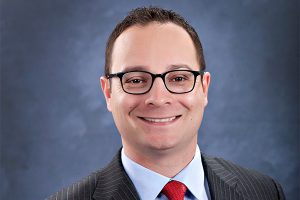Silverstein: Ohio’s HB 295 Raises “Serious Civil Liberties Concerns”
 Adult industry attorney Corey D. Silverstein, operator of MyAdultAttorney.com and Adult.Law, recently spoke to CleveScene.com about civil liberties concerns raised by Ohio’s House Bill (HB) 295.
Adult industry attorney Corey D. Silverstein, operator of MyAdultAttorney.com and Adult.Law, recently spoke to CleveScene.com about civil liberties concerns raised by Ohio’s House Bill (HB) 295.
Dubbed the “Innocence Act” by its sponsors, HB 295 would implement an age verification requirement in the state of Ohio much like what has already been implemented in several other U.S. states, albeit with “more aggressive penalties for non-compliance,” as Silverstein put it in a statement calling attention to the CleveScene article.
Under HB 295, companies and webmasters who don’t implement “reasonable” age verification methods could be subject to criminal charges, with the offense constituting a third-degree felony under Ohio law. As Silverstein noted in his statement, “no other proposed and/or implemented age verification regulation in the US has such punitive criminal penalties.”
“HB 295 is another example of a dangerous trend where politicians are seemingly ignoring common sense – and the Constitution – at the same time,” Silverstein said.
Silverstein also explained that additional language in HB 295 creates a misdemeanor for anyone circumventing the age block from the side of the user (eg via VPN). According to Silverstein, this aspect of HB 295 will most certainly impact young people looking to access adult content online.
“I can’t think of a worse idea than charging minors with criminal offenses for viewing adult content and potentially ruining their futures,” Silverstein told CleveScene. “Attempting to shame and embarrass minors for viewing adult-themed content goes so far beyond common sense that it begs the question of whether the supporters of this bill gave it any thought at all.”
Silverstein added that introducing criminal penalties for failing to verify a user’s age is a significant First Amendment violation which would impact all people – not just minors.
In an email exchange with YNOT, attorney Larry Walters of FirstAmendment.com highlighted the fact that “multiple violations of the Act constitute felonies that can be enforced by governmental prosecution.” The silver lining represented by that fact, should HB 295 become law, is that it would be more vulnerable to challenge than state laws which merely create a right to a civil action.
“While a civil action is allowed, the prohibitions can also be enforced criminally, so the Act is vulnerable to a legal challenge by any affected company,” Walters said. “This one is unique, however, since it expands the prohibitions to juveniles who produce false ID to access adult content online.”
You can read the full article for which Silverstein provided comment, “Proposed Porn Age Verification Bill in Ohio Raises Serious Civil Liberties Concerns” on CleveScene.com.












